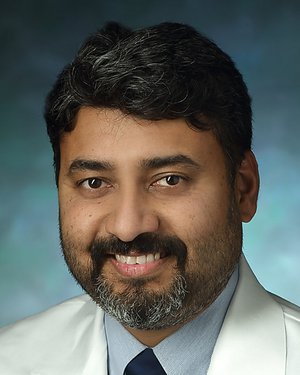Research Lab Results
-
Bakker Memory Lab
Research in the Bakker Memory Laboratory is focused on understanding the mechanisms and brain networks underlying human cognition with a specific focus on the mechanisms underlying learning and memory and the changes in memory that occur with aging and disease. We use a variety of techniques including neuropsychological assessments, experimental behavioral assessments and particularly advanced neuroimaging methods to study these questions in young and older adults and patients with mild cognitive impairment, Alzheimer’s disease, Parkinson’s disease and epilepsy. Through our collaborations with investigators in both basic science and clinical departments, including the departments of Psychiatry and Behavioral Sciences, Psychological and Brain Sciences, Neurology and Public Health, our research also focuses on brain systems involved in spatial navigation and decision-making as well as cognitive impairment in neuropsychiatric conditions such as schizophrenia, eating disorders, obsessive-compulsive disorders, depression and anxiety. -
Brent Petty Lab
Dr. Petty's laboratory interests focuses on antimicrobial chemotherapy, hospital-based medical practices, and internal medicine collaboration with ophthalmologic clinical trials.
-
Biophotonics Imaging Technologies (BIT) Laboratory
Research in the Biophotonics Imaging Technologies (BIT) Laboratory focuses on developing optical imaging and nano-biophotonics technology to reduce the random sampling errors in clinical diagnosis, improve early disease detection and guidance of biopsy and interventions, and improve targeted therapy and monitoring treatment outcomes. The imaging technologies feature nondestructiveness, unique functional and molecular specificity, and multi-scale resolution (from organ, to architectural morphology, cellular, subcellular and molecular level). The nano-biophotonics technologies emphasize heavily on biocompatibility, multi-function integration and fast track clinical translation. These imaging and nano-biophotonics technologies can also be potentially powerful tools for basic research such as for drug screening, nondestructive assessment of engineered biomaterials in vitro and in vivo, and for studying brain functions on awake animals under normal or controlled social conditions. -
Best Laboratory
The Best Laboratory focus on therapeutic vaccine development for HPV-related diseases by developing a murine model of papilloma analogous to Recurrent Respiratory Papillomatosis (RRP) for testing of DNA vaccine technology. We also work to understand the immunosuppressive tumor microenvironment that facilitates RRP development, and translate this work into novel therapies and clinical practice.
-
Zack Wang Lab
The Wang lab focuses on the signals that direct the differentiation of pluripotent stem cells, such as induced-pluripotent stem (iPS) cells, into hematopoietic and cardiovascular cells. Pluripotent stem cells hold great potential for regenerative medicine. Defining the molecular links between differentiation outcomes will provide important information for designing rational methods of stem cell manipulation.
-
Zishan Siddiqui Lab
Research in the Zishan Siddiqui Lab focuses on patient-centered care and satisfaction, preoperative medicine and clinical reasoning. We are also interested in international medicine. In a previous collaboration with Daniel Brotman, M.D., we discovered that hospital renovations do not improve patient satisfaction.
-
Dölen Lab
The Dölen lab studies the synaptic and circuit mechanisms that enable social behaviors. We use a variety of techniques including whole cell patch clamp electrophysiology, viral mediated gene transfer, optogenetics, and behavior. We are also interested in understanding how these synaptic and circuit mechanisms are disrupted in autism and schizophrenia, diseases which are characterized by social cognition deficits. More recently we have become interested in the therapeutic potential of psychedelic drugs for diseases like addiction and PTSD that respond to social influence or are aggravated by social injury, We are currently using both transgenic mouse and octopus to model disease. -
Dagnelie Ultra Low Vision Lab
The Ultra Low Vision Lab is interested in assessing and enhancing the functional visual abilities of individuals with ultra-low vision. The lab uses psychophysical experiments to investigate innovative methods for improving visual prostheses. -
Deborah Schwengel Lab
Research in the Deborah Schwengel Lab focuses on perioperative care of pediatric patients with obstructive sleep apnea as well as anesthetic care for patients undergoing ethanol embolization of vascular malformations. Our team also explores topics within graduate medical education. In this field, our work has involved evaluating both an educational curriculum and a disaster preparedness curriculum for anesthesiology residents. We also have a long-standing interest in international adoption medicine.
Principal Investigator
Department
-
Dhananjay Vaidya Lab
Research conducted in the Dhananjay Vaidya Lab focuses on the prevention of heart disease, with special emphasis on cardiometabolic risk factors, genetics in high-risk families, cardiovascular epidemiology, statistics and vascular biology. We also provide consultation on study design as well as plan and oversee data analyses for projects supported by the Center for Child and Community Health Research.


